
Is this body really in your control? Do you own this body? How do you let go of obsessions about your body? In this post I will attempt to answer some of these questions. Today we live in a society in which we are heavily obsessed with our bodies. I see so many people in my medical practice who are not happy about their bodies. Mostly people are too concerned about their physical appearance. They think either they are too fat or too thin. Some people go to the extent of even getting plastic surgery to look better. These body image issues especially trouble the younger generation. Other people are very worried about their health. This is somewhat reasonable in some settings. There are a small number of people who go to extremes of worrying about their physical heath. Some people are so worried about their illness they can even make it worse just by worrying too much. Do we really have control over these issues? Let us examine how these things work.
I try to tell my patients it is important to look after your body, but you have to always remind yourself it does not belong to you. You are only just "renting" it for the time being. Perhaps you may not agree with this or you may even think this is a little bit too "drastic". Suppose you had to rent a car for some time, you will have to take care of it while you use it. You will have to pump gas, change the oil, wash it and check the air pressure in the tire and so on. Applying the same principal when you have a body, you have to look after it the best way you can. But you have to always remember that you don't own it. There is a very deep concept in Buddhism called "Anatta" or "non-self." This is one of the very important teachings of the Buddha and he explained this in his second disclosure after his enlightenment, called Anatta-lakkhana Sutta. In this, he says "it is not only your body, you have absolutely no ownership of your feelings, perception, thinking (mental formations), and your consciousness." These were called the five aggregates. Although it is very difficult to understand these concepts, when one realises the true nature of these fully within oneself, that person is said to be fully enlightened. In Buddha's own words, "holy life fulfilled, the task done"
I try to tell my patients it is important to look after your body, but you have to always remind yourself it does not belong to you. You are only just "renting" it for the time being. Perhaps you may not agree with this or you may even think this is a little bit too "drastic". Suppose you had to rent a car for some time, you will have to take care of it while you use it. You will have to pump gas, change the oil, wash it and check the air pressure in the tire and so on. Applying the same principal when you have a body, you have to look after it the best way you can. But you have to always remember that you don't own it. There is a very deep concept in Buddhism called "Anatta" or "non-self." This is one of the very important teachings of the Buddha and he explained this in his second disclosure after his enlightenment, called Anatta-lakkhana Sutta. In this, he says "it is not only your body, you have absolutely no ownership of your feelings, perception, thinking (mental formations), and your consciousness." These were called the five aggregates. Although it is very difficult to understand these concepts, when one realises the true nature of these fully within oneself, that person is said to be fully enlightened. In Buddha's own words, "holy life fulfilled, the task done"
For the purpose of this post we will only focus on the body. I will try to explain this concept simply as possible. The Buddha said "if you own this body you should be able to keep it the way you want." You should be able to say "may my body be this way or may my body not be this way." In other words if you have ownership of the body, you should be able to give orders to it. You should be able to say, "hey body listen to me !.... I don't want you to get old, sick or die!" However, we all know that it is impossible to do that. This is because the body is arisen as a result of certain conditions coming together. There are three basic features of conditioned things. You can see its birth (origin), change while it exists and fading away(disappearance). Our bodies are no different as we can see birth, ageing and death. When you buy a new car it usually runs well until the warranty runs out (unless you get a "lemon"). So does your body when you are young you are usually healthy. When your car gets old and gives trouble, you may have to go to the mechanic often. Using the same principle, when you get older you may have frequent visits to the doctor. In the case of your car, eventually you have to throw it away and get a new one. Similarly your body will have to be discarded when you die. If you are reborn as a human you may get a new body and this process starts all over again. Interestingly, the final goal in Buddhist practice is not to get a new body again! Then you don't have to go through this endless cycles of old age, sickness and death which causes suffering. This is called Nirvana, putting an end to the cycle of birth, old age, sickness and death and then rebirth, the opposite of what we call the Samsara.
Now what can you do to not get attached to this body so much? If you meditate regularly the answer is simple. It is the practice of mindfulness meditation of the body, as described in Satipattana sutta. If you do not meditate you can start thinking of your body as a "rental. " This may somewhat free your mind from your body. This may help you not worry so much when you are sick. This will also help you not to be too obsessed with your body image as well. We all know that there is a close connection between the body and the mind. For a moment think your body as the "car" and your mind as the "driver." You have to look after both very well. If you don't take care of your car like doing a regular service and oil change, it may breakdown or even crash. The same way if the driver is not well trained, it does not matter how well you looked after your car, it may crash due to bad driving. This is a metaphor I always use in my practice to emphasise the importance of looking after both body and the mind. Ultimately what is most important is to have a good balance between the two.
As we discussed before the body and the mind are very closely connected and can influence each other. There is a lot of research done in this area to investigate how the mind can influence the body. The same way the body can influence the mind. When you are in pain you mind is not very clear and you can easily get irritated or even angry, and depressed. These days there is a lot of emphasis on body wellness. In fact we are sometimes a little too obsessed with looking after our bodies. We jog, go to the gym every day and so on. These are all good things but the only problem is we do very little to look after our mind. It is important that we have to exercise our minds as well. This exercise is different form the body exercise. You exercise the body by "running" whereas the mind you exercise by "stopping." This is where Buddhist practice of mindful meditation comes in. Recent research has shown meditation can even increase the thickness of your brain's grey matter. Meditation not only trains you to do things mindfully it also leads to wisdom and happiness. So it is a "two for one" deal. Research has also shown that mindfulness meditation can improve your immune system as well as general well being (read previous posts listed below).
So try to look after your body the best way you can, but don't ever forget to look after your mind. Remember you can have a perfect car, but if you have a bad driver, it is of no use. You know clearly sooner or later what would happen...CRASH!. It is difficult to always remember that you are just "renting" this body. You may want to contemplate on this as often as you can. This will hopefully help you to better understand your body and mind and will make you more content and happy in this very life.
Related Links:
Anatta lakkhana Sutta
How can mindfulness help?
Practice of mindfulness four bases of mindfulness
Do like to be happiest man on earth?
Now what can you do to not get attached to this body so much? If you meditate regularly the answer is simple. It is the practice of mindfulness meditation of the body, as described in Satipattana sutta. If you do not meditate you can start thinking of your body as a "rental. " This may somewhat free your mind from your body. This may help you not worry so much when you are sick. This will also help you not to be too obsessed with your body image as well. We all know that there is a close connection between the body and the mind. For a moment think your body as the "car" and your mind as the "driver." You have to look after both very well. If you don't take care of your car like doing a regular service and oil change, it may breakdown or even crash. The same way if the driver is not well trained, it does not matter how well you looked after your car, it may crash due to bad driving. This is a metaphor I always use in my practice to emphasise the importance of looking after both body and the mind. Ultimately what is most important is to have a good balance between the two.
As we discussed before the body and the mind are very closely connected and can influence each other. There is a lot of research done in this area to investigate how the mind can influence the body. The same way the body can influence the mind. When you are in pain you mind is not very clear and you can easily get irritated or even angry, and depressed. These days there is a lot of emphasis on body wellness. In fact we are sometimes a little too obsessed with looking after our bodies. We jog, go to the gym every day and so on. These are all good things but the only problem is we do very little to look after our mind. It is important that we have to exercise our minds as well. This exercise is different form the body exercise. You exercise the body by "running" whereas the mind you exercise by "stopping." This is where Buddhist practice of mindful meditation comes in. Recent research has shown meditation can even increase the thickness of your brain's grey matter. Meditation not only trains you to do things mindfully it also leads to wisdom and happiness. So it is a "two for one" deal. Research has also shown that mindfulness meditation can improve your immune system as well as general well being (read previous posts listed below).
So try to look after your body the best way you can, but don't ever forget to look after your mind. Remember you can have a perfect car, but if you have a bad driver, it is of no use. You know clearly sooner or later what would happen...CRASH!. It is difficult to always remember that you are just "renting" this body. You may want to contemplate on this as often as you can. This will hopefully help you to better understand your body and mind and will make you more content and happy in this very life.
Related Links:
Anatta lakkhana Sutta
How can mindfulness help?
Practice of mindfulness four bases of mindfulness
Do like to be happiest man on earth?















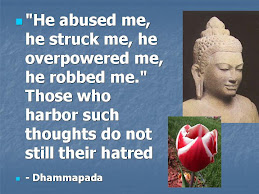

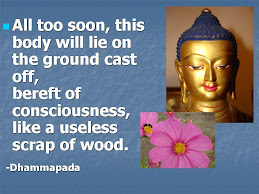
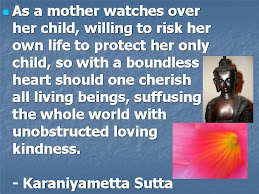
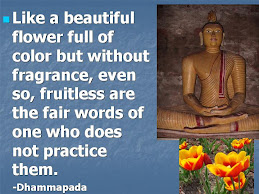
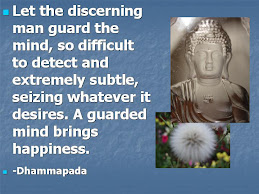

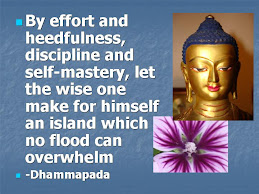

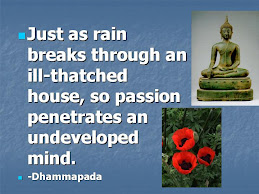


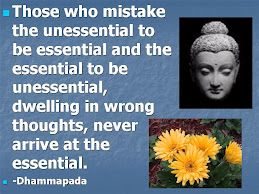
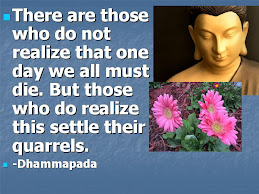
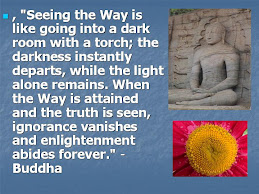

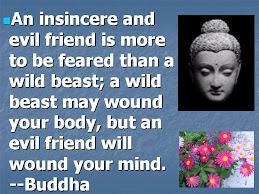
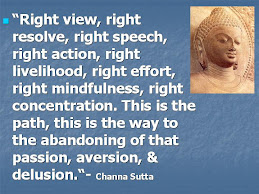

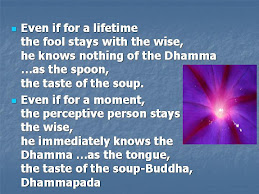


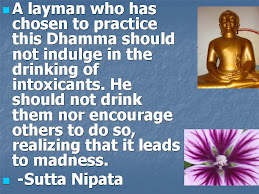
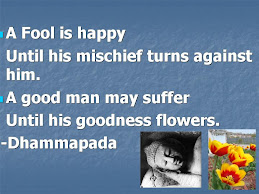
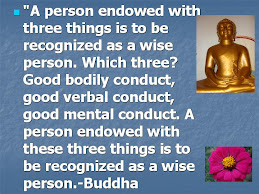

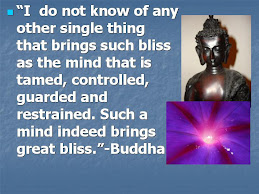
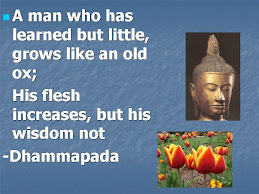
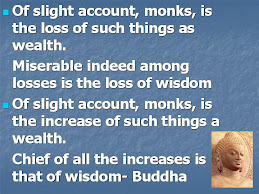

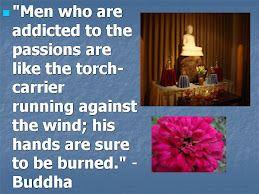


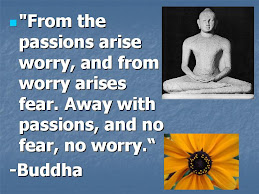
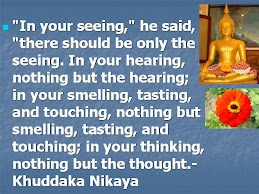




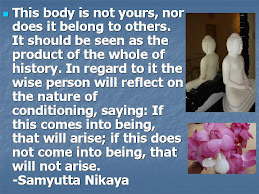
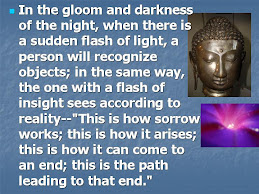
















5 comments:
Dr. Walpola-
The car and driver analogy is wonderful, especially since in todays day and age it is something so familiar to so many of us.
"These days there is a lot of emphasis on body wellness. In fact we are sometimes a little too obsessed with looking after our bodies. We jog, go to the gym every day and so on. These are all good things but the only problem is we do very little to look after our mind."
I'm sure you see a lot of that in your clinical practice. It's so easy to forget to look at the mind at all, especially since there is so little in or society that would even encourage mental cultivation. I suppose if you can help even one person take care of their body AND their mind it would be a good thing. Again, tahnks for the insightful posts. May you be well in your practice.
Justin
Hi Justin
Thank you again. I am glad that you like my site.
You are so right. I see people who spend thousands of dollars to change looks of this decaying body of ours, which does not belong to you anyway. However, if you spend that time and effort on wholesome deeds, Dhana (giving or generosity), Sila (morality), Bhavana (Meditation) you will get a better return for your effort.
BTW, I visited your site and added to my links. I like it a lot. Keep on doing kamma. That is all we can do.
Piyal
Justin
Keep on doing GOOD kamma, that is what I wanted to say!
Piyal
Dr.Walpola-
Hello there! I've been reading a few pages from your site, and. I must say, I'm very, very much interested in the teachingsof Buddha. I have no past experience with a 'religion' and I'm only eighteen. I'm starting to feel changes in my mindset and the way I think, I become angry easily with annoying classmates, and professors. I feel like I'm missing something in my life, and I honestly feel like its a 'religion' related thought. I love how Buddism is so calm, collected, and level headed. I want to become this. I want to mold my thinking and my ways of life. I believe it would really helpgrowing up become so much easier if I could get a grasp on Buddism. The only problem is I have no idea where to start. My family is christian, but they're not forceful with their beliefs, hence why I never really got into religion. I was wondering if you would mind replying to me and helping me out. You seem like someone who knows what their talking about. (: Thank you ever so much for your time, it means so much to me.
Giselle.
Dear Giselle,
I very much appreciate your comment.
You are right. What you think you become. Buddha said “with your intentions you shape your present and the future.” So you are basically in charge in shaping your future with skilful thoughts, words and actions. Main focus of training in Buddhism is the mind. This is through Meditation. I see this training of Buddhism as a science of the mind. There are lots of neuroscientist see it this way as well. This is why now meditation had become a cutting edge research subject in neuroscience. Here is a latest research study fro Harvard University.
“Meditation’s positive residual effects”: http://news.harvard.edu/gazette/story/2012/11/meditations-positive-residual-effects/?utm_source=facebook&utm_medium=social&utm_campaign=fb-wall
May I suggest you three books you can read (From 1 to 3). The books you can order through Amazon or try a local bookstore (like Chapters). I have given you some links to PDF versions (the last book only chapters 1-5) for you to get an idea or read on e-reader.
1.What the Buddha taught: http://www.dhammaweb.net/books/Dr_Walpola_Rahula_What_the_Buddha_Taught.pdf
2. Mindfulness in Plain English: http://www.urbandharma.org/pdf/mindfulness_in_plain_english.pdf3
3. Mindfulness Bliss and beyond: http://www.dhammatalks.net/Books11/Ajahn_Brahm-Mindfulness_Bliss_and_Beyond-Chapters1-5.pdf
I hope this is enough to start with. Please do not hesitate a post a comment or a question in my blogs. Also you can visit my latest blog on compassion to oneself. Here is the link: http://loving-kindness-compassion-yourself.blogspot.ca/
With Much humbleness and gratitude
Piyal
Post a Comment